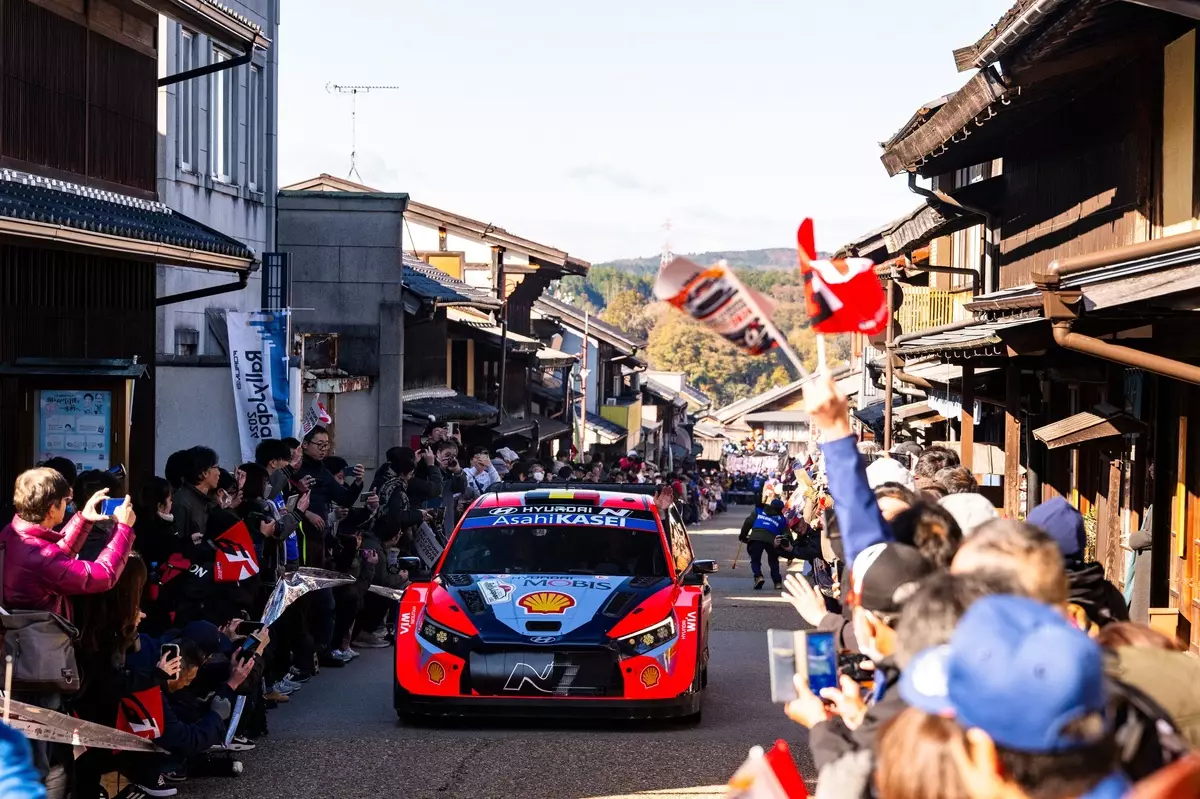Thierry Neuville, on the path to potentially clinching his first World Rally Championship (WRC) title, faces a daunting challenge at Rally Japan. After a harrowing Friday marked by a turbo failure that relegated him to a disappointing 15th position, the pressure was mounting. The stakes were high as Neuville needed at least six points to secure the required championship title. Instead of succumbing to despair, Neuville demonstrated remarkable resilience on Saturday, clawing his way back into contention. By the end of the day, he had risen to seventh, strategically positioned to score valuable points in the final day of racing.
Neuville’s tenacity is noteworthy. Instead of opting for a conservative drive to protect his points lead, he recognized the necessity for a vigorous approach to fend off competitors who are also vying for glory. Given the competitive nature of the rally scene, with the likes of nearby drivers such as Andreas Mikkelsen and M-Sport’s Gregoire Munster pushing aggressively, Neuville opted to keep his foot on the gas. His mastery over the vehicle and exceptional skills were pivotal in overcoming the setbacks of Friday.
Neuville’s decision to maintain an aggressive drive underscores the intricate dynamics of the sport. In a typical racing scenario, many drivers might choose to play safe when nearing a championship title. However, Neuville’s approach is illuminating; understanding that every driver in the mix is also gunning for both personal and manufacturers’ titles creates a scenario where caution could be detrimental.
Hyundai’s chance at the manufacturers’ title rests, in part, on Neuville’s shoulders. The strategic interplay between driving for himself and his team is a defining aspect of rally racing, showcasing the layered complexity of motorsport competition. Neuville’s ability to cope with the dual pressures—personal ambition and collective responsibility—highlights the mental fortitude required to thrive in such high-stakes environments.
In reflecting on his Saturday performance, Neuville touched on the necessity of balancing risk and speed. The mental strain is palpable; none of it is particularly stress-free. With rivals pushing their limits, he acknowledges the looming threat. “They have nothing to lose and everything to gain, and for me, it is the opposite,” he said, emphasizing the precariousness of his position. Neuville’s ability to navigate through such tension while simultaneously managing the car’s mechanics brings to light the essence of a successful rally driver.
Rally driving is a blend of physical endurance, acute awareness of one’s environment, and strategic risk management. Neuville’s insightful observations about the relentless pace and shifting conditions paint a vivid picture of the 13-hour days spent racing. Adapting to the evolving conditions requires not only skill but also mental adaptability. As fatigue sets in, the pressure can distort decision-making ability, making it a test of durability as much as capability.
Across the rally, another Hyundai driver, Ott Tanak, is also battling for his own claims to the title while supporting Neuville’s chances and the team’s overarching aspirations. The interplay between Neuville and Tanak is indicative of how individual drives contribute to the team’s overall success in rallying. As both drivers navigate their championship journeys, their performances are interconnected, driving overall outcomes for Hyundai.
Tanak’s impressive lead underscores the collaborative effort each driver must engage in, where every point scored is a step closer to achieving collective goals. His reflections on the exhausting demands of long driving hours and adapting to variable conditions resonate with any competitive athlete, where the struggle is not just against other teams but also within oneself.
As the final day of Rally Japan looms, Neuville’s road to a potential championship is rife with challenges. He is not merely racing for himself but must navigate through the intricacies of teamwork, competitor threats, and personal pressure. The anticipation of “Super Sunday” carries with it the weight of expectations: both from himself and his sponsors. As he inches closer to a possible championship, the narrative of resilience, strategic racing, and mental strength unfolds, solidifying the essence of what it means to be a champion in the WRC world. Neuville’s journey embodies the relentless pursuit of excellence, where every flat tire, steep incline, and twist represents more than mere obstacles but rather opportunities for triumph. The final act remains, and whether he can transform adversity into victory will be a testament to his enduring spirit in the face of high stakes.

